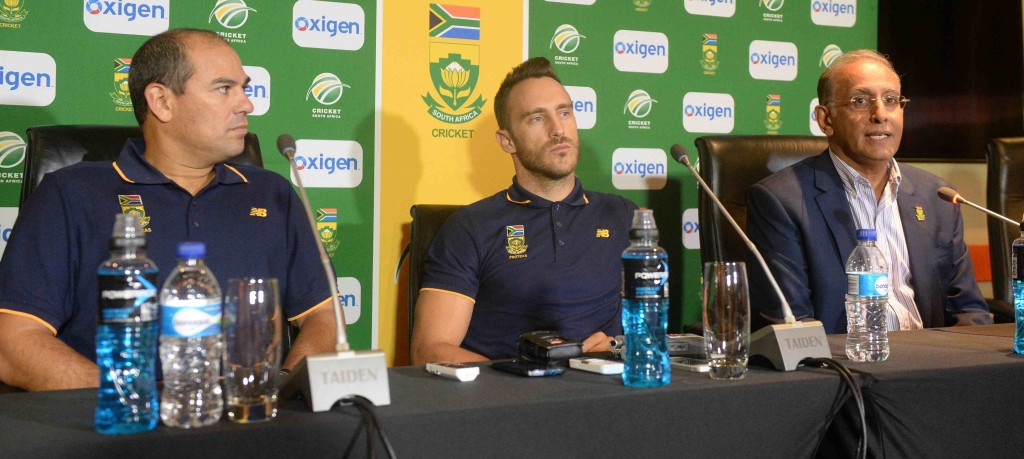It’s good to hear that CSA CEO Haroon Lorgat has promised no knee-jerk reaction to the Proteas latest World Cup failure.
However, the results and process of that review need to be made public.
I picked up on the following statement from the press conference after the Proteas arrived back in the country after a disappointing group stage exit at the World T20 tournament: ‘With every passing ICC event that we come back from, [performing] below expectation, the reviews should get tougher. It goes without saying that we will need to do some sort of review. We will do it objectively, we will do it smartly; not knee-jerk. It’s not emotional stuff. We will do it properly.’
That has to be applauded but the Proteas – as are the Springboks and Bafana Bafana – are public property. The public invest plenty in supporting the national teams, both emotionally and financially, and they deserve transparent feedback.
A question, ahead of this latest Proteas review is to challenge Lorgat’s assertion that ‘with every passing ICC event that we come back from, below expectation, the reviews should get tougher.’
I’d like to ask what review, if any, was done after the Under-19s bombed out of their World Cup only a couple of months ago? They won the event under coach Ray Jennings in 2014 and unearthed talent that included Kagiso Rabada. In 2016, the latest crop of Under-19s were eliminated from the main competition after defeats to Bangladesh and Namibia. And then they lost in the Plate event to Zimbabwe, hammered by eight wickets after being bowled out for 91.
Jennings was replaced as U19 coach immediately after he had led the team to victory in 2014. The job was surprisingly declared vacant and he re-applied for the post. Jennings had been in charge for eight years, had delivered the World Cup and he wanted to carry on. He was overlooked in favour of Lawrence Mahatlane. We still don’t know why.
The U19s have been in complete freefall ever since, and while the defeat to Bangladesh was no surprise, as they have lost repeatedly to that opposition, being eliminated by Namibia was a shock. South Africa were 60-8 at one stage before being bowled out for 136.
‘It seems as though the team is not properly prepared for the tournament and there’s definitely a lack of motivation,’ Jennings observed. ‘The same mistakes are repeated and plans aren’t properly implemented. It’s very sad.’
Sure, the players, be it the Boks, Proteas or U19s, must take a lot of the flak, but the buck stops with those running the show. The public deserves to know why failure in some areas is tolerated, while success in others – think Jake White after the 2007 RWC and Jennings in 2014 – resulted in the coaches losing their job.
This is no personal slur on Russell Domingo, but the stats are there to back up the continued under-achievement. He has overseen eight Test wins out of 23 (a winning rate of 35%), won 40 of 69 ODIs (58%) and in T20s has won 19 of 34 (56%).
Mickey Arthur, a predecessor who had an extended stint as Proteas coach, finally resigned under pressure. Arthur had won 22 of 45 Tests (49%), 68 of 103 ODIs (66%) and 17 of 26 T20s (65%).
Professional sport is big business and business is results-driven. Look at the English Premier League to understand that managers are accountable to how their team performs. Arthur’s stats are superior to that of Domingo, although in mitigation of the current coach it’s equally true to say that Arthur himself didn’t win any ICC silverware, while he also had all-time greats in Jacques Kallis and Graeme Smith to call-upon in all formats of the game. Domingo though has similar greats in AB de Villiers, Hashim Amla and Dale Steyn and a potential one in Rabada.
Right now it would be good to get a timeline from Cricket SA as to when this latest performance review will be completed and if the findings will be made public. And also to ask what the way forward is with the Under-19s coaching staff, because it’s all gone quiet on that front and they went from champions to chumps in the space of two short years.







